#intersectional justice
Text
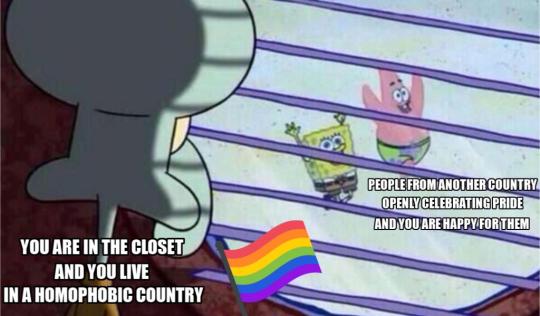
I'm still in the closet and still doesn't have money to escape from this place, but celebrating pride in secret. Okay to reblog
#HappyPride
#pride#lgbt#lgbtq+#lgbtq+ rights#memes#gay#lesbian#bisexual#pansexual#trans#genderfluid#nonbinary#agender#asexual#aromantic#equality#justice#intersectional feminist#intersectional justice#human rights#intersex#intersectional feminism#mogai
35K notes
·
View notes
Text
Intersectionality according to the woman who coined the term
If you haven't actually read Kimberlé Crenshaw's original paper on intersectionality, go do so, you can read it for free at this link:
Link to Kimberlé Crenshaw's original 1989 paper on intersectionality
It is very good. It's quite a scathing critique of radfem concepts like "you are a woman first", a unified "female experience" or a "universal womanhood", in my opinion.
For all the radical feminists in my notes claiming that I don't know what intersectionality means and that I'm using it wrong...
If you think intersectionality is only about women, you haven't read the introduction to her paper, where Crenshaw states that she is introducing the concept of intersectionality by centering black women - but she is not saying intersectionality is only applicable to black women.
She is using race and sex as in introduction to the topic of intersectionality, but she has stated many times that intersectionality goes far beyond race and sex.
"Intersectionality is a framework for understanding how issues like sexism, racism, classism and more can overlap and affect people in multiple ways, Crenshaw has said."
[link to CNN article]
This is a link to a TED talk she gave in 2016 where she discusses intersectionality in detail. It's 18 minutes long, and if you have the time I really recommend watching this as well. She once again centers black women in her discussion of intersectionality, what it is, and why it matters.
Content Warning for the video: From timestamp 14:49 onward, there are images that may be disturbing to some, that show the violence black women have faced. This is done as a tribute to these women, bearing witness to the violence they have faced as a way to honor them, but it may be triggering for some people.
This image is from the video, showing the intersection that Crenshaw uses as a metaphor and that she based the concept of intersectionality on:

Some important quotes:
"Many years ago, I began to use the term "intersectionality" to deal with the fact that many of our social justice problems like racism and sexism are often overlapping, creating multiple levels of social injustice."
"So what do you call being impacted by multiple forces and then abandoned to fend for yourself? Intersectionality seemed to do it for me."
"I would go on to learn that African-American women, like other women of color, like other socially marginalized people all over the world, were facing all kinds of dilemmas and challenges as a consequence of intersectionality, intersections of race and gender, of heterosexism, transphobia, xenophobia, ableism, all of these social dynamics come together and create challenges that are sometimes quite unique."
---
If you deal with an intersection of identities that become more than the sum of their parts, you can use the word intersectionalism to describe your oppression. It's ok. That's how the word is meant to be used. It is not just a word for women, it is not just describing how womanhood intersects with multiple identities.
#intersectionality#intersectional feminism#anti radfem#anti terf#intersectional justice#social justice#trans#transgender#racial equality
113 notes
·
View notes
Text
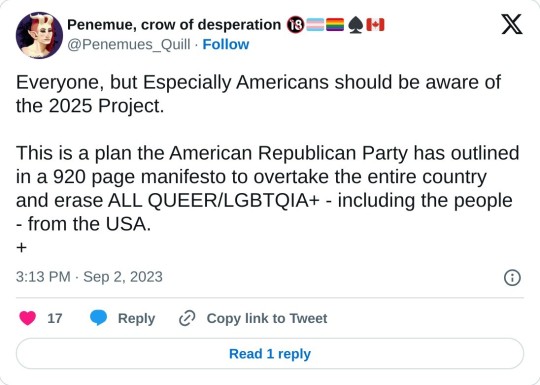
This thread is incredibly important to read.
It is also extremely difficult to read. I don't know if I need to point this out, but the document itself is obviously full of bigotry so please take care of yourself if you choose to read it. Antisemitic phrases like "cultural marxism" and "global elites" appear before the document even really gets rolling, and are mixed in with transphobia, racism, and more.
If you want a taste of how this document starts in the first main section about "The Family", here is a taste:
"This starts with deleting the terms sexual orientation and gender identity (“SOGI”), diversity, equity, and inclusion (“DEI”), gender, gender equality, gender equity, gender awareness, gender-sensitive, abortion, reproductive health, reproductive rights, and any other term used to deprive Americans of their First Amendment rights out of every federal rule, agency regulation, contract, grant, regulation, and piece of legislation that exists."
It is all bad. ALL of this document is bad, and dangerous, and threatens the lives and the safety of everyone living in this country.
#uspol#us politics#election 2024#lgbtq#queer#transgender#feminism#intersectional feminism#trans rights#queer rights#lgbtq rights#social justice#poc rights#racial justice#civil rights
31K notes
·
View notes
Text
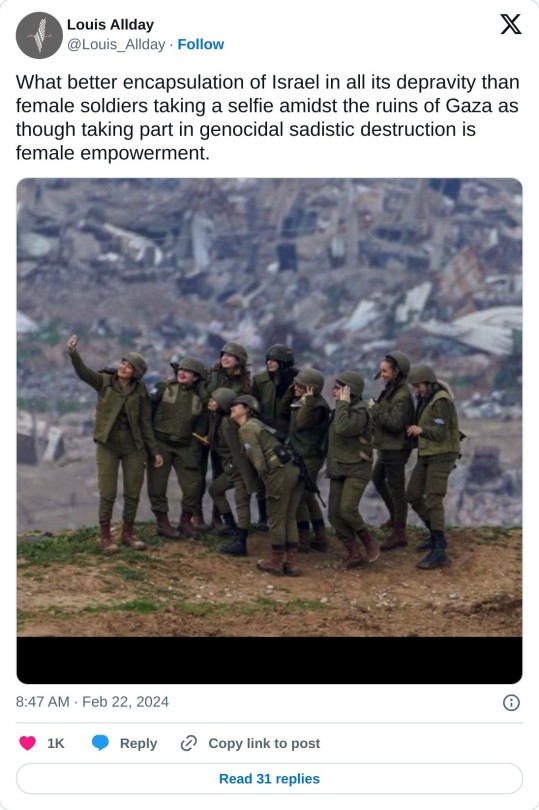
That is why when the IOF or any western/European government tries to weaponize feminism in order to further it's settler-colonial agenda you must ALWAYS be wary and resist their narratives. I don't speak on behalf of all feminists -but on this right here -there is NOTHING empowering about women in the IOF military committing genocide and war crimes -these women are FULL participants in the mass ethnic cleansing and displacement of Palestinian people and they must be held accountable.
#feminist#feminism#social justice#free palestine#palestine#free gaza#settler violence#settler colonialism#current events#intersectional social justice#end the occupation#ceasefire now#war on gaza#gaza news#gaza strip#gaza#gaza genocide
6K notes
·
View notes
Text

[ID: A light pink square post, with white outlined stars in the bottom corners. In the center of the page towards the bottom, large all-caps text reads “join QYA’s racial justice department.” Below that, smaller black text reads “Sign up to help us fight for intersectional queer and racial equity!” Above the text are three illustrated people; the person on the left is white, has green hair and a purple sweater, and waves a trans flag. The person in the center has dark brown skin, curly dark hair, a green t-shirt, and is waving a progress flag. The person to the right has light tan skin, red curly hair, and is wearing a battle jacket vest over a green T-shirt. End ID.]

[ID: A light pink square post, with white outlined stars in the upper corners. Centered black text at the top of the page reads “The Racial Justice Department is a new branch of QYA intending to provide a comprehensive, safe space for queer people of color and allies to strategize, reflect, organize, and dream together to build a liberated future across the country.” Five illustrated people are shown at the bottom of the page, drawn from the waist-up. They are all smiling, and vary in appearance and characteristics. End ID.]

[ID: A light pink square post with small black text in the upper-center that reads “Check out the link in our bio to join the Racial Justice Department, and to get involved with Queer Youth Assemble! And if you have questions, email the Head of Racial Justice at [email protected]” In the bottom left of the page are five illustrated people, drawn standing or using a wheelchair, holding a white sign with the QYA logo. The people vary in race, clothing, and style. There is a QYA logo in the bottom right of the page. End ID.]
#original post#queer youth assemble#qya#racial justice#intersectional justice#queer poc#qpoc#qtbipoc#youth organization#queer youth#trans youth#queer rights#trans rights#lgbtq youth#lgbtq rights
0 notes
Text
"No Pride for some of us without liberation for all of us." -Marsha P. Johnson



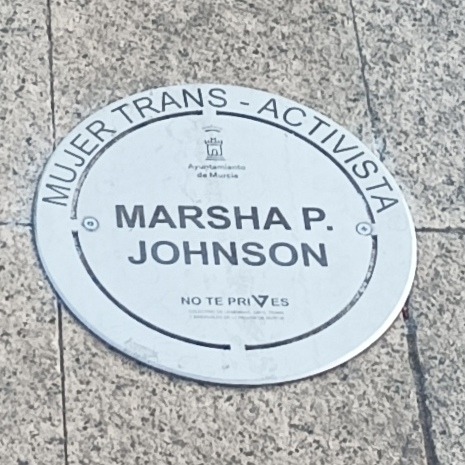
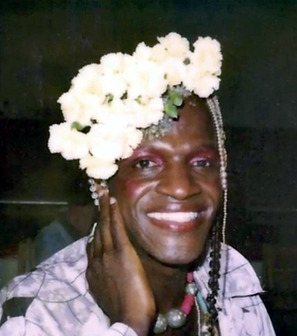
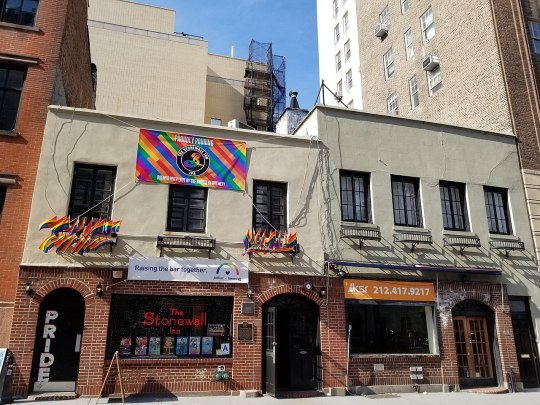

#the first pride was a riot#remember your roots#marsha p johnson#other#black#women#and other#humans#opened the door#stonewall riots#paved the way#blm#black lives matter#black women#trans rights#intersectional social justice#intersectional feminism#us history#queer history#BIPOC history#queer bipoc#lgbtq+ history#1980s#queer#lgbtq#lgbtq history#ivy speaks#gnc#drag#transgender
8K notes
·
View notes
Text
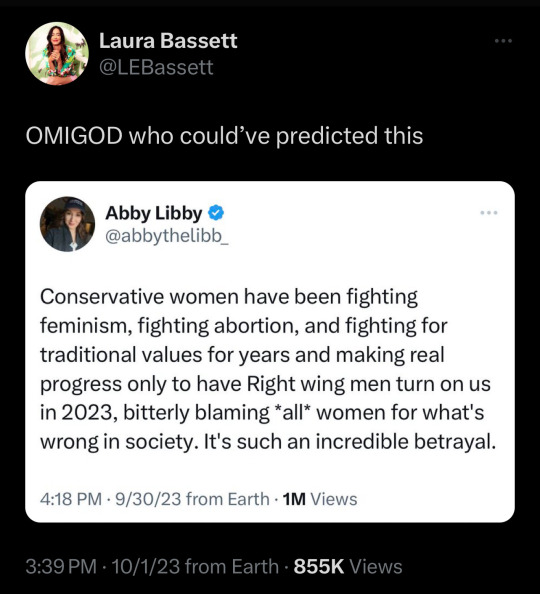
Lmao, Abby feels “betrayed” by Right wing conservative men, who been showing everyone they hated women literally from day one
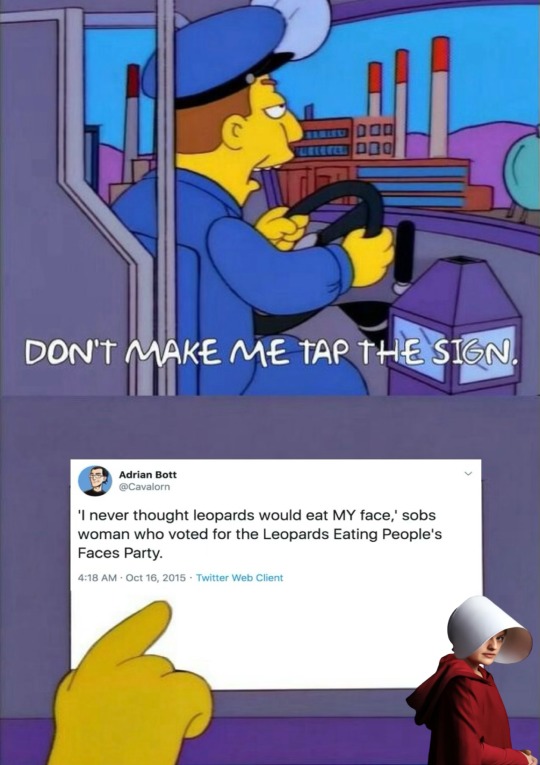
#lol#politics#republicans#abby libby#abortion#lgbtq#womens rights#lgbt#reproductive rights#reproductive justice#martin niemoller#feminism#womanism#intersectional feminism#solidarity
2K notes
·
View notes
Text

The South River Watershed Alliance is having an entire week of divestment for corporations supporting Cop City! They will be having toolkits and webinars all week open to everyone not just people in Atlanta!! Here's the link to either host or attend an action. We need everyone's help to Stop Cop City!!!
#stop cop city#atlanta#politics#weelaunee forest#environmentalism#tortuguita#ecology#Atlanta Southern River Forest#enviornment#biology#mutual aid#intersectional activism#protect the atlanta forests#cop city#Georgia#social justice
791 notes
·
View notes
Text
Hating nazis does not mean you’re not prejudiced against Jews. Posting about how you’d love to punch a nazi is not your get-out-of-accusations-of-antisemitism free card
#jewish#Jews#Jew#antisemitism#antisemitic#social commentary#social justice#activist#activism#please#left#leftist#liberal#intersectionality#feminism#feminist#intersectional#Judaism
500 notes
·
View notes
Text
Femme Fatale Guide: How To Decenter Men In Your Life
Consider the values, goals, and desired lifestyle that feel most authentic to you if social scripts/stigmas didn't apply to you
Take time to become radically honest with your desires as an individual – outside of the perception of men, your family, boss, teachers, peers, etc.
Cultivate a sense of personhood and identity established in your interests, hobbies, skillsets, learning capabilities, creativity, and desire for growth in all aspects of life
Act in your own best interests. Speak up for your needs, and advocate for yourself. Be more "selfish." Don't apologize for what you want and go after it. Act in your own best interests
Become confident in negotiating, assertive communication, and standing on your own two feet. Establish relationships in all aspects that are based on mutual benefit and equitable exchange
Unlearn your self-sacrificing & people-pleasing. Stop shrinking yourself or suppressing your needs to make others feel better or more comfortable
Validate yourself: your needs, desires, goals, dreams, preferences, and opinions. You need to choose yourself every day. Your appeal to others means nothing if you don't like the person you are or are becoming to satisfy the needs or desires of others
Consider the ways you're consciously and subconsciously confining your self-expression and belief system to fit the mold/appease the patriarchy. Actively work to deconstruct this mentality and way of being
Be honest with yourself about how men enrich your life. Not the other way around. Do they fulfill you romantically, sexually, both, or neither? There's no right or wrong answer, except the one that requires you to put on a performance rather than live in alignment with your true self
More resources including book recommendations/creators to follow HERE.
#decentering men#intersectional feminism#feminism#feminist#women empowerment#womens rights#intersectionality#social justice#patriarchy#purity culture#female gaze#female excellence#female power#female writers#it girl#femme fatale#female sexuality#the feminine urge#queen energy#high value woman#internalized shame#girl advice#personal growth#femmefatalevibe#women's rights#gender norms#female rage#feminist theory#book rec list#womanism
1K notes
·
View notes
Text
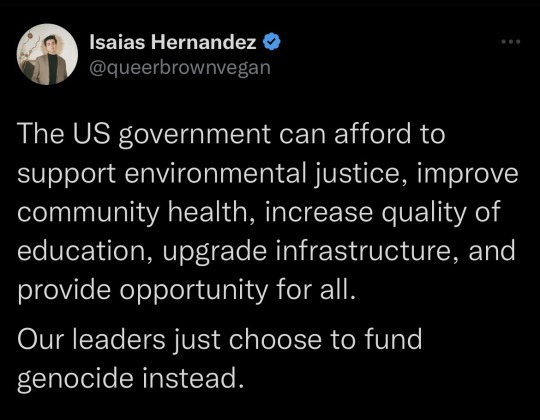
The US government can afford to support environmental justice, improve community health, increase quality of education, upgrade infrastructure, and provide opportunity for all.
Our leaders just choose to fund genocide instead.
#queerbrownvegan#sustainability#climate change#environmentalism#social justice#environment#climate crisis#environmental justice#activism#intersectional environmentalism#palestine#free palestine
875 notes
·
View notes
Text
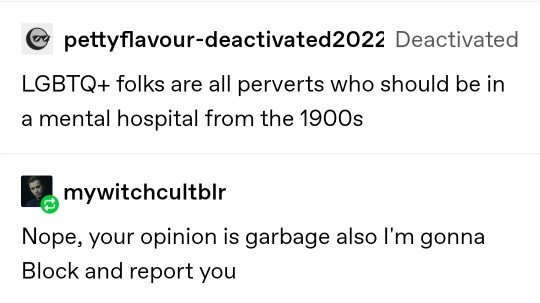
Lesson of the day to remember: Don't fuck with me or with my fellow LGBTQIA+ brethren, that account was active a few hours ago
#lgbt#lgbtq#lgbtqia+#trans#bisexual#pansexual#lesbian#gay#asexual#aromantic#intersex#queer#equality#intersectional justice#intersectional feminist#politics#human rights#yup
733 notes
·
View notes
Text
I am copy-pasting and adding content to this from a very long reblog chain discussion I had on my main account. I feel like it deserves its own post as a discussion about feminism and who feminism is for.
---
I think there's going to be some natural growing pains in the coming years as feminists on an individual basis and feminism as a whole confronts what it is truly about. (not that feminism is a single movement or identity anyway, there are already multiple flavors of feminism!)
The two main directions I see as people try to approach this from are "Feminism is for Women" and "Feminism is for Females".
But it's way, way more complicated than that, because the things feminism is trying to address go beyond someone's gender or their sex. Feminism tries to address things like how the patriarchy treats femininity in general, how the patriarchy treats people perceived as women, how it treats people who are female, how it treats relationships and what "the family" should look like, intersections of patriarchy and capitalism, patriarchy and other forms of oppression like race and sexuality, how things like global warming affect vulnerable populations, and more.
Feminism is a movement trying to address fundamental aspects of our society on so many levels.
So.... who is feminism for?
Is feminism only for cis women?
Is feminism for all women, both trans and cis?
Is feminism only for people who identify as women or as feminine-aligned genders, such as demigirls, transfemmes, etc, regardless of birth sex, but not for people with masculine genders?
Is feminism only for afab people who identify as women or nonbinary, but not for transmascs or trans men?
Is feminism for all afab people, regardless of identity, but not for amab people?
Is feminism for anyone who identifies as a marginalized gender?
Is feminism for everyone except cis men?
Is feminism for everybody?
(Yes, the link is to bell hooks' Feminism is for Everybody)
As you can see, there's a pretty big debate going on over who feminism is for, who feminists should focus on, who feminism serves, and who feminism is supposed to primarily benefit.
Radical feminists have their own ideas, trans feminists have other ideas, it's a mess at the moment.
Personally, I think feminism is for everybody.
I think it's important for individual feminists to focus on what's most important to them, and form coalitions to focus on those issues while remaining allies with one another. We can't eat an elephant alone.
I have my own personal flavor of feminism that is based on my early life experiences as a young woman, and my experiences now as a transmasc nonbinary butch approaching my 40's, as well as my interest in socialism and environmentalism. My feminism focuses on:
Trans issues within feminism and is specifically focused on the needs of afab trans people within feminism. Afab trans people suffer greatly from an intersection of misogyny and transphobia.
I also focus on reproductive rights. Afab trans people share a lot of medical misogyny with cis women, for example, so we all need to be allies of each other.
I'm also really interested in reproductive justice from an environmental point of view: everyone deserves a safe, clean planet to raise their children on.
I also focus on how feminism can combat toxic masculinity and make the world a better place for masculine people, too.
And yes, I think there's absolutely a place for feminists who want to solely focus on cis women... but I also want them to be aware and happy with the fact that their efforts are going to help trans women and trans men and even cis men!
I think focusing on how the patriarchy treats everyone like garbage is a pretty big task, and it's ok if we each find our own niche.
#feminism#intersectional feminism#intersectional justice#intersectional activism#transmasc feminism#trans#transgender#trans rights#trans masc#transmasc#nonbinary#afab#trans men#revolutionary feminism
101 notes
·
View notes
Text
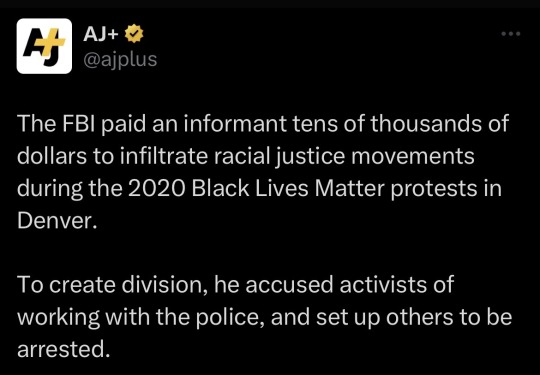
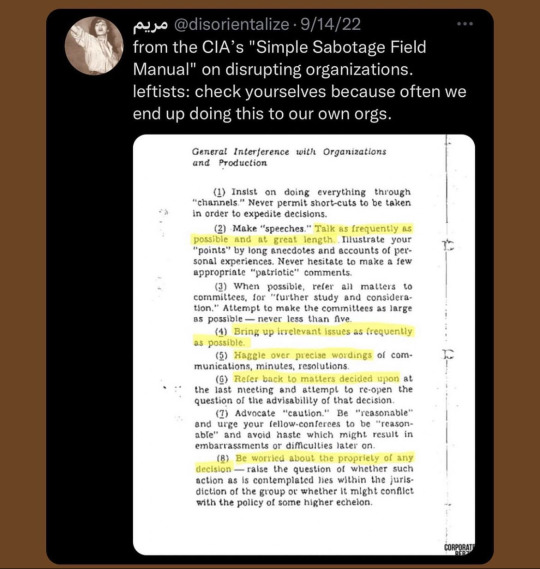
While this information may technically be new, government infiltration is not. As mentioned in the video, COINTELPRO is a perfect historical example of the insidious downfall of so many leftist grassroots organizations, and guess what? We've made posts about COINTELPRO in the past!
This information isn't made to scare you though, but to empower us all to come together even stronger, even smarter, even more diligently. We owe it to ourselves, to our communities, and to our predecessors to do at least that much. As working class citizens, we must protect one another. Do not get distracted by the divisions those in power wish to ensue.
Confused on where to start? Even if you don't apply as a volunteer, @bfpnola is a safe space for all youth activists to ask questions and receive free resources! Here’s what you need to get started:
Our Linktr.ee | Liberation Library | Discord Server | Open Youth Leadership Positions | Staff Application | Donate
#reaux speaks#resources#black lives matter#history#cointelpro#indigenous#anti capitalism#bipoc#abolition#queer#protest#intersectional feminism#disability justice#anarchism
2K notes
·
View notes
Text
@/kittiearie on tiktok wrote this caption on her video: "When the sundown sisters' feminism is being upset Margot Robbie wasn't nominated for an Oscar but silent on how women and girls in Palestine don't have access to pads, tampons, contraceptive pills and other hygeine products while mothers are having their children without anesthetics."
some of white western feminist advocacy boils down to viewing issues (problematically so) as one-dimensional. their praxis never includes reflexivity, accountability, and intersectionality; while they ensure that their OWN reproductive health rights are never threatened, they vastly ignore so many people suffering in the world just because it doesn't directly impact them -looking at their priorities is just always so shameless and despicable.
#feminist#feminism#social justice#free palestine#free gaza#current events#current news#us imperialism#western imperialism#white feminism#intersectional social justice#intersectional activism#intersectional feminism#intersectionality#palestinian liberation#we are not free until we all are#reproductive health#reproductive rights#healthcare#margot robbie
2K notes
·
View notes
Text
“Voices” Acts 9:36-43 and John 10:22-30
An explanation:
The Hebrew word for widow connotes one who is silent, one unable to speak. In a society in which males played the public role and in which women did not speak on their own behalf, the position of widow, particularly if an eldest son was not yet married, was one of extreme vulnerability. If there were no sons, a widow might return to her paternal family if that recourse were available. Younger widows were often considered a potential danger to the community and urged to remarry.
Left out of the prospect of inheritance by Hebrew law, widows became the stereotypical symbol of the exploited and oppressed. Old Testament criticism of the harsh treatment of these women is prevalent. So are the texts in which they are under the special protection of God.1
In our reading from Acts this week, we hear “All the townswomen who had been widowed stood beside [Peter] weeping, and showed him the various garments Dorcas had made when she was still with them.” (Acts 9:39b, Inclusive Bible)
I have to admit something. I've read this passage many times, and every time I saw the widows as showing off Tabitha/Doras's impressive needlework, and thought it was sort of a strange details, but otherwise ignored it.
Maybe my heart is in a different place this week, because when I read it THIS week I thought, “Oh. My. Gosh. She literally clothed the widows.” The women were showing Peter her GOOD WORKS that had blessed their lives as proof to him that she was worthy of his healing.
(Which, of course, makes far more sense and most of you probably noticed ages ago, but I'm slow and I try to admit it because the Bible is dense and none of us can make sense of it all at once.)
There is another detail to know about this story, an important one. Not only is Tabitha named in this story, which is pretty unusual for Biblical women, and named TWICE which is even less usual. She is called a disciple. Now, if you were wondering if that was unusual, let me answer with a scholarly quote, “Luke uses the feminine form for 'disciple' – the only time it is used in the NT.”2
This is the ONLY woman in the Bible called a disciple of Jesus, who is described as someone who “never tired of doing kind things or giving to charity,” at whose death the people who are most exploited and oppressed gather, grieving, and trying to prove her worth by showing the gifts she had made them.
I am incredibly moved by the example of this first woman disciple.
Because, here is the thing about Tabitha. Her story suggests that as a follower of Jesus, she spent her life making things easier for the most vulnerable people around her, but not just by giving them things, but also by loving them. I don't think the level of grief we hear from the women who'd been widowed in this story reflects a fear that new clothes are going to be harder to come by. I think their FRIEND, who saw them, and eased their burdens, had died.
Tabitha heard their voices, and used her life to respond to their needs. Where the Bible talks about God's special protection for the widows, it seems that Tabitha was part of God's work.
A disciple of Jesus, a little Christ, indeed. In John, the voice of Jesus says, “My sheep hear my voice. I know them, and they follow me.” It is clear in this story in Acts that Tabitha knew the voice of Jesus, and followed. And set an example for those of us who come after her.

Now, widowhood is not today what it was then. Today's widows may well be struggling with economic hardship, but the first connotation of widow is “someone who has lost her love” instead of “someone who has lost her livelihood and protection.”
Which means that when we are trying to consider who the “stereotypical symbol of the exploited and oppressed” is in our society, I don't think it defaults to widows anymore. Nor do I think there is one simple answer. I fear that who is seen as the “stereotypical symbol of the exploited and oppressed” is as impacted by context, perception, and political party as all of our other opinions. Meaning, I'd likely start the list with trans women of color (#mostlikelytobemurdered) and could continue on from there to an expansive list.
After this week I am concerned that an addition to the highest levels of the list of “stereotypical symbol of the exploited and oppressed” is going to need to be “anyone capable of becoming pregnant who doesn't want to be pregnant.” Because, it seems, our society is about to declare that people who become pregnant stop having authority over their own bodies. (Happy Mothers' Day.)
You want to know what else is really interesting about Tabitha? We get two names for her, she is called a disciple, she is known for her good works. And, in addition to all that, neither her marital nor social status is mentioned. She's known for HER works, and they eclipse the question of who she belongs to. Which, to be fair was the sort of kindom building equity the early church was going for, but it is still pretty notable when it happens! It also seems notable that those widows were named as believers. They weren't just recipients of charity, nor even simply friends of a disciple. They too were the church. The church was of everyone, even those whose NAME implied “the silenced.” It seems like Tabitha's church had stayed very close to the roots of Jesus's movement.
The question of who is particularly vulnerable, exploited, oppressed is really a question of who Jesus would be hanging out with. To his credit, Jesus took a really expansive view of that as well, including fishermen and tax collectors, widows and single women, children and senators, adulterers and the mentally ill, hemorrhaging women and those with physical disabilities.
Several years ago, when I was nearing time to go to camp, I had to let someone know I wouldn't be available for some meeting during camp. (This was not a person in this church or community.) The person responded, “Oh, that's right, you go to camp and work with people with special needs. That's so good of you!”
I. Am. Still. Mad.
Furious.
Because, going to camp is the most selfish thing I do all year. I got camp because I love the campers. I go to camp because I love camp. I go to camp because my humanity and faith are restored by camp and by the campers.
I'm not a GOOD person for that, and to imply that I am implies that there is something wrong with the campers and THERE IS NOTHING WRONG WITH THE CAMPERS. Everything is right with the campers.
Which makes me wonder a bit. I think likely Tabitha and the widows of her community were friends, real friends, people who loved each other and mutually gained from their connections. I wonder if a question we should be asking in response to Tabitha's story is, “who do I find it easy to love and grow with, and how can I let that love expand my heart to let even more people in?”
I worry that this question COULD keep us too closed off, too limited to those we already know, too small. But then I remember what LOVE is like, and how everyone has stories that matter, and everyone has experiences of oppression, and how LOVE likes to expand itself all over the place. And I find I'm ready to trust love to be our guide.
I believe our faith calls us to see the humanity in ALL people, including those who are oppressed, and to share our love and our lives with mutuality and respect. And, to be open to letting that love expand to those we don't yet know who have struggles we don't yet understand. Let love be our guide, and let it expand in us. I believe that's what it means to follow Jesus' voice, and Tabitha's example. May God help us do it! Amen
1Bruce J. Malina and Richard L. Rohrbaugh Social-Science Commentary on the Synoptic Gospels (Minneapolis: Fortress Press, 2003) “Widow,” 423.
2Robert Wall, “Book of Acts” in New Interpreter's Bible Vol 10I ed. Leander E. Keck et al (Nashville: Abingdon Press, 2002) footnote p. 161.
Rev. Sara E. Baron
First United Methodist Church of Schenectady
603 State St. Schenectady, NY 12305
Pronouns: she/her/hers
http://fumcschenectady.org/
https://www.facebook.com/FUMCSchenectady
May 8, 2022
#Thinking Church#progressive Christianity#FUMC Schenectady#Schenectady#First UMC Schenectady#UMC#Sorry about the UMC#rev Sara E. Baron#Pandemic Preaching#Tabitha#dorcas#disciple#Roe v wade#Transwomen of Color#intersectional Justice
0 notes